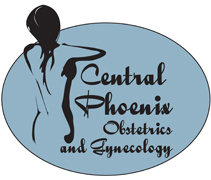By admin on June 7, 2017 in Health
0
0
1. Reading in dim light ruins your eyesight
- Low lighting can create a sensation of having difficulty in focusing and decreases the rate of blinking which leads to discomfort from dry eyes
- Reading in dim light can cause eye strain with multiple temporary negative effects, but does not cause a permanent change on the function or structure of the eyes

- In the past people had even less light for reading–candles or lanterns–so it does not follow that today more people use glasses than in the past if dim lighting is to blame
2. It takes 7 years for gum to digest if you swallow it.
- Gum is mostly indigestible.
- But like anything else you eat that your body that can’t digest, the occasional swallowed piece will pass through your intestines and exit the other side.
- The only cases where swallowed gum has caused a problem is when that gum is swallowed along with other things that shouldn’t be in your stomach or if you swallow gum many many times a day many consecutive days in a row.
3. Being stressed will give you high blood pressure.
- Acute stress/frustration an/or pain can temporarily increase blood pressure. It should go back to normal in minutes to hours.
- Stress does not play a large role in chronic high blood pressure.
- Things like genetics, smoking, and a bad diet are much bigger factors.
- If your blood pressure is high on more than two occasions, it’s not traffic, you may need medication.
4. We use only 10% of our brains
- This myth arose as early as 1907, by many who advocated the power of self-improvement and tapping into each person’s unrealized latent abilities.
- MRI imaging and metabolic studies show that people use much more than 10% of their brains. No area of the brain is completely silent or inactive.
- Studies of patients with brain injury suggest that damage to almost any area of the brain has specific and lasting effects capabilities.
5. Eating small, frequent meals will help you lose weight
- Metabolism is complicated and all the factors that control it are not known but food intake has little effect on fast or slow metabolism
- Some foods, including those with caffeine, may slightly and temporarily increase metabolism, but the effect is too small to help you lose weight
- A group of researchers found that people who ate more than six small meals each day had a great desire to eat and felt hungrier between meals
- Building muscle as a greater part of your body weight will increase your ability to burn calories
- So sorry about this one: The only simple formula for weight loss is eating fewer calories and more movement.
6. Eating a lot of carrots gives you great vision.
- This myth comes from the fact that Vitamin A is good for the health of your eyes
- Betacarotene, a Vitamin A, is found in significant quantities in carrots
- But eating a lot of the vegetables won’t make your vision super human
7. You should take a vitamin every day to be healthy
- There is very little data that supports the benefits of taking nutrients in pill form
- Some are not absorbed at all or only poorly absorbed
- In some cases, vitamins have actually been associated with an increased risk of various cancers
- some conditions benefit from vitamin supplementation, your health care provider will guide you to the ones you need.
8. Beer before liquor, never sicker; liquor before beer, you’re in the clear
- Alcohol is alcohol, and too much of it will make anyone feel sick
- There is no evidence that drinking in a particular order alters how sick you get
- Sometimes people switching from one type of alcohol to another may already have some impairment and may be less likely to monitor their alcohol consumption meaning they are drinking more and therefore will feel sicker

